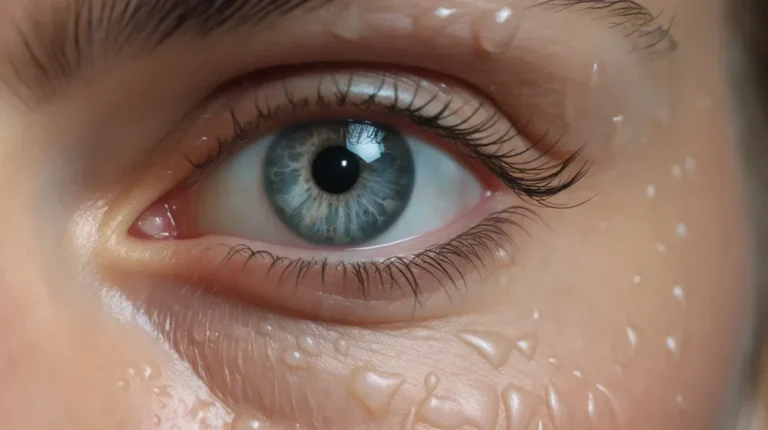Vitamin C After Botox: Is It Safe and Beneficial?
Are you curious about the potential benefits of incorporating Vitamin C into your skincare routine after receiving Botox injections? You may have heard whispers of Vitamin C’s ability to enhance skin healing and rejuvenation but are still determining if it is safe and truly effective.
In this article, we will explore the science behind Vitamin C and Botox interaction, discuss the potential benefits of Vitamin C after botox skin care, and provide expert opinions and authentic patient experiences.
Whether you’re seeking to maximize your Botox results or simply looking to improve your overall skin health, this article will provide you with the information you need to make informed decisions.
Key Takeaways
- Vitamin C can be safely used after Botox treatments and has the potential to provide benefits to the skin.
- Vitamin C plays a role in skin healing, collagen synthesis, and skin brightness, which are essential factors in post-Botox skincare.
- The timing and method of Vitamin C application after Botox should be considered for optimal results.
- Expert opinions and patient experiences should be taken into account when incorporating Vitamin C into a post-Botox skincare regimen.
Vitamin C After Botox: An Effective Combination?
Combining Vitamin C with Botox has been a topic of interest in the field of cosmetic dermatology, but is it truly an effective combination? Post-Botox skincare with Vitamin C has gained popularity among individuals seeking to enhance and maintain their Botox results.
Vitamin C serum is known for its antioxidant properties and its ability to promote collagen production in the skin. By incorporating Vitamin C into your skincare routine after Botox, you may experience enhanced results and improved skin healing.
Research suggests that Vitamin C can interact positively with Botox, as it aids in reducing inflammation and supporting the natural healing process of the skin. Additionally, Vitamin C has been shown to increase the longevity of Botox results by maintaining the health and elasticity of the skin. Using a Vitamin C serum after Botox injections can optimize the benefits of your treatment and achieve a more youthful and rejuvenated appearance.
Blood flow is a critical aspect of skin health, influencing various treatments and procedures in cosmetic care. Enhanced blood circulation plays a vital role in collagen production, which is essential for maintaining skin elasticity and youthfulness. In the context of cosmetic treatments, such as dermal fillers and injectable treatments, understanding the dynamics of blood flow is crucial. These procedures often target facial muscles and specific injection sites, aiming to rejuvenate and enhance appearance.
However, factors like blood thinners can significantly impact the outcome and safety of these cosmetic procedures. Patients using blood thinners need to discuss their medication with a healthcare provider before undergoing any cosmetic procedure to prevent complications at the injection sites.
Moreover, physical activity, known to boost blood circulation, can also impact the healing process and effectiveness of cosmetic treatments. It’s typically advised to moderate physical activities following injectable treatments to ensure optimal results and minimize any potential adverse effects. Overall, the relationship between blood flow and skin health is an integral consideration in the field of cosmetic dermatology, influencing both treatment strategies and patient care.
To enhance your Botox results with Vitamin C, it’s recommended to apply a Vitamin C serum daily, preferably in the morning, after cleansing your face. Look for a serum that contains a stable form of Vitamin C, such as L-ascorbic acid, as it’s known to be the most effective in promoting collagen synthesis and protecting the skin against free radicals.
The Science Behind Vitamin C and Botox Interaction

Understanding the interplay between Vitamin C and Botox involves delving into the science of skin health and the mechanisms by which these two interact. Vitamin C, known for its skin-enhancing properties, can complement the effects of Botox treatments. Here’s a scientific breakdown of their interaction:
1. Collagen Synthesis and Skin Elasticity:
- Vitamin C’s Role: Vitamin C is vital for the synthesis of collagen, an essential protein in the skin that contributes to its firmness and elasticity. By promoting collagen production, Vitamin C can enhance the skin’s natural healing and rejuvenation process.
- Complementing Botox: Botox works by relaxing facial muscles, which can help reduce the appearance of wrinkles. When combined with the collagen-boosting effects of Vitamin C, the overall texture and appearance of the skin can be improved.
2. Antioxidant Properties of Vitamin C:
- Neutralizing Free Radicals: Vitamin C’s antioxidant properties help neutralize free radicals in the skin, which are caused by environmental stressors like UV radiation and pollution.
- Protecting Skin Post-Botox: This antioxidant action can be beneficial post-Botox, as it helps protect the skin and aids in its recovery.
3. Enhancing Botox Results:
- Skin Health and Recovery: Vitamin C can support the skin’s natural healing process post-Botox treatment, potentially enhancing the overall results of the procedure.
- Synergistic Effect: The combination of Botox’s muscle-relaxing properties and Vitamin C’s skin health benefits can create a synergistic effect, leading to more pronounced improvements in skin quality.
4. Optimal Timing for Vitamin C Application:
- Post-Treatment Application: The timing of applying Vitamin C after Botox is crucial. It’s generally advised to wait a day or two after Botox injections before applying Vitamin C serums or creams to avoid irritation and allow the Botox to settle correctly.
- Regular Incorporation: Regular use of Vitamin C in your skincare routine after the initial post-Botox waiting period can contribute to longer-lasting results and enhanced skin health.
5. Consultation with Healthcare Providers:
- Professional Advice: It’s essential to consult with a dermatologist or skincare professional regarding the use of Vitamin C post-Botox. They can provide tailored advice based on your skin type and the specifics of your Botox treatment.
Benefits of Vitamin C for Post-Botox Skincare
Incorporating Vitamin C into your post-Botox skincare routine offers significant benefits for skin health and rejuvenation. This powerful nutrient not only enhances the results of Botox treatments but also contributes to the overall health and appearance of the skin. Here’s a detailed look at these benefits:
1. Collagen Synthesis and Repair:
- Boosts Collagen Production: Vitamin C is a critical player in collagen synthesis. Post-Botox, increased collagen production can aid in maintaining skin elasticity and firmness, enhancing the anti-aging effects of Botox.
- Skin Structure Support: By stimulating collagen production, Vitamin C helps maintain the structural integrity of the skin, reducing the likelihood of wrinkles and fine lines reappearing.
- Accelerates Healing: The increased collagen production also aids in faster healing of any minor bruising or swelling that may occur post-Botox.
2. Antioxidant Properties for Skin Health:
- Fights Free Radicals: Vitamin C’s antioxidant properties combat free radicals, which can cause oxidative stress and damage to skin cells.
- Protects Against Environmental Damage: It helps protect the skin from damage caused by UV exposure and pollution, which is particularly beneficial post-Botox when the skin is in a recovery phase.
3. Reduces Inflammation and Enhances Healing:
- Anti-Inflammatory Effects: Vitamin C can help reduce inflammation, minimizing redness and swelling post-Botox treatment.
- Promotes Faster Recovery: These anti-inflammatory properties contribute to a quicker and more comfortable post-treatment recovery.
4. Improves Skin Brightness and Texture:
- Enhances Skin Tone: Regular use of Vitamin C post-Botox can lead to a brighter, more even skin tone.
- Improves Overall Skin Quality: The nutrient works to enhance skin texture, making it appear smoother and more radiant.
5. Long-term Skin Benefits:
- Prevents Premature Aging: Ongoing use of Vitamin C can help prevent signs of premature aging, complementing the effects of Botox.
- Strengthens Skin Defense: It bolsters the skin’s natural defenses, improving its resilience against age-related changes.
6. Application Tips:
- Gentle Formulations: Opt for Vitamin C serums or creams formulated for sensitive skin to avoid irritation.
- Consistent Use: Incorporate Vitamin C into your daily skincare routine for best results, but always consult with your dermatologist for personalized advice, especially after Botox treatments.
Timing and Application of Vitamin C After Botox
To optimize the benefits of Vitamin C after receiving Botox injections, it’s essential to consider the timing and application of this skincare ingredient. Dermatologists recommend incorporating Vitamin C into your skincare routine post-Botox to support the healing process and enhance the results of your treatment.
Here are some key factors to keep in mind:
- Skincare Ingredients Compatibility: Before applying Vitamin C, ensure that it’s compatible with any other skincare products you’re using. Some ingredients may interact negatively with Vitamin C, compromising its efficacy or causing skin irritation. Consult with your dermatologist or skincare professional to ensure compatibility and avoid any adverse reactions.
- Patient Recovery Protocols: Botox injections require a recovery period to allow the treated muscles to settle and the results to fully manifest. It’s generally recommended to wait at least 24 hours before introducing new skincare products, including Vitamin C. This allows your skin to stabilize and reduces the risk of potential side effects.
- Skincare Routine Post-Cosmetic Procedures: After the initial 24-hour waiting period, you can gradually incorporate Vitamin C into your skincare routine. Start by applying a small amount of Vitamin C serum or cream to clean dry skin. Gently massage it into your face and neck, focusing on areas where you received Botox injections. Follow with your regular moisturizer and sunscreen for added protection.
Following these recommendations will help ensure the safe and effective integration of Vitamin C into your post-Botox skincare routine. Remember to consult with your dermatologist for personalized advice and to address any concerns you may have.
Expert Opinions on Vitamin C After Botox
When considering the use of Vitamin C in a post-Botox skincare routine, it is indeed crucial to explore the perspectives and recommendations of skin care professionals and dermatologists. While direct scientific research on Vitamin C’s specific effects post-Botox may be limited, the broader knowledge about Vitamin C’s benefits to skin health provides valuable insights. Here’s a summary of expert opinions:
1. Enhancement of Botox Results:
- Promotes Skin Health: Many experts agree that Vitamin C, known for its skin health benefits, can complement Botox treatments. It aids in collagen production and helps maintain the elasticity and resilience of the skin.
- Anti-Aging Properties: Its antioxidant properties can enhance the anti-aging effects of Botox by protecting the skin from further damage.
2. Reducing Inflammation and Accelerating Healing:
- Post-Treatment Care: Vitamin C can potentially reduce inflammation and speed up the healing process, which is beneficial after Botox injections that may cause minimal skin trauma.
3. Mixed Patient Testimonials:
- Subjective Experiences: Individual experiences with Vitamin C post-Botox vary, with some patients reporting enhanced results and others noticing no significant changes.
- Customized Skincare: This variation underlines the importance of personalized skincare recommendations tailored to individual skin types and responses.
4. Safety and Precautions:
- Consultation with Healthcare Providers: Dermatologists and skincare professionals often recommend consulting with a healthcare provider before adding Vitamin C to your regimen post-Botox.
- Skin Sensitivity Assessment: Special consideration should be given to the timing of application and the concentration of Vitamin C, especially for sensitive skin types.
5. Role in Long-term Skincare:
- Preventative Measures: Beyond immediate post-Botox care, Vitamin C is recognized for its role in long-term skin health, potentially enhancing and prolonging the effects of Botox over time.
Real Patient Experiences: Vitamin C and Botox
Many patients who’ve combined Vitamin C with their Botox treatments have reported positive experiences and noticeable improvements in their skin’s appearance and overall results. Here are some real patient testimonials that highlight the benefits of Vitamin C after Botox:
- ‘I started using a Vitamin C serum after my Botox injections, and I noticed that my skin looked more radiant and youthful. It definitely enhanced the effects of the Botox and made my results last longer.’
- ‘I was worried about the redness and inflammation after my Botox treatment, but applying Vitamin C helped reduce the swelling and speed up the healing process. My skin felt smoother and looked healthier.’
- ‘After doing some research, I decided to incorporate Vitamin C into my post-Botox skincare routine. I can confidently say that it has improved the longevity of my Botox results and kept my skin looking refreshed.’
These patient testimonials align with medical guidelines for post-botox care, which recommend using gentle skincare products that promote healing and nourishment. Vitamin C is known for its antioxidant properties and its ability to promote collagen production, which can enhance the effects of Botox and support skin health.
While individual experiences may vary, many patients find that incorporating Vitamin C into their post-botox regimen can provide noticeable benefits for their skin.
Maximizing Botox Results With Vitamin C
Maximizing the results of Botox treatments through the strategic use of Vitamin C has garnered interest due to the potential synergistic benefits these two can offer. Understanding the science behind this combination can help in effectively enhancing Botox results. Here’s a closer look at how Vitamin C can be integrated into a post-Botox skincare regimen:
1. Enhancing Skin Health Post-Botox:
- Collagen Synthesis: Vitamin C is crucial for collagen production. Post-Botox can aid in maintaining skin elasticity and firmness, potentially enhancing the smooth appearance created by Botox.
- Antioxidant Properties: As an antioxidant, Vitamin C can help protect the skin from damage, supporting the skin’s overall health and complementing Botox’s aesthetic effects.
2. Prolonging Botox Effects:
- Research Insights: Studies, such as those in the Journal of Cosmetic Dermatology, indicate that Vitamin C may contribute to prolonged Botox effects, though individual results can vary.
- Improved Longevity: The combination might not only enhance the immediate results but also contribute to maintaining these results for a more extended period.
3. Use of Topical Vitamin C Products:
- Skin Nourishment: Post-Botox, topical Vitamin C products can provide targeted nourishment and hydration, promoting faster recovery and enhancing skin appearance.
- Product Selection: Choose serums or creams with stable forms of Vitamin C and those suited for your skin type.
4. Customized Skincare Approach:
- Consultation with Professionals: Before incorporating Vitamin C into your post-Botox regimen, consult with a dermatologist for tailored advice.
- Personalized Skincare Plan: Your skincare professional can recommend the appropriate formulation, concentration, and application timing of Vitamin C based on your specific skin type and Botox treatment.
5. Safety and Efficacy:
- Avoiding Irritation: Ensure that the use of Vitamin C does not irritate, especially in the days immediately following Botox injections.
- Observing Skin Response: Monitor your skin’s response to the introduction of Vitamin C post-Botox, adjusting usage as needed.
Frequently Asked Questions
Can Vitamin C Be Used Immediately After a Botox Treatment?
Yes, you can use vitamin C immediately after a Botox treatment. It is safe and beneficial as it helps with skin healing, collagen production, and reducing inflammation. Follow your dermatologist’s recommendations for the best results.
What Are the Potential Side Effects of Using Vitamin C After Botox?
Using Vitamin C after Botox injections may have potential side effects. It’s essential to consult with your healthcare provider to understand the specific risks and benefits of your case.
How Long Should I Wait to Apply Vitamin C After Getting Botox?
You should wait at least 24 hours to apply Vitamin C after getting Botox. This allows Botox to settle and reduces the risk of any potential interaction between the two.
Are There Any Specific Types or Forms of Vitamin C That Are More Effective for Post-Botox Skincare?
There are no specific types or forms of Vitamin C that are more effective for post-Botox skincare. However, incorporating a Vitamin C serum into your skincare routine can help with skin healing and collagen production.
Can I Use Vitamin C in Conjunction With Other Skincare Products After Botox?
Yes, you can safely use Vitamin C in conjunction with other skincare products after getting Botox. It can help with skin healing, collagen production, and maintaining your Botox results.
Conclusion
So, are you considering adding Vitamin C to your skincare routine after Botox? Well, the good news is that it’s safe and can actually benefit your skin’s healing and rejuvenation process.
Vitamin C, with its antioxidant properties and role in collagen synthesis, can enhance and maintain the results of your Botox treatment. Expert opinions and authentic patient experiences support the use of Vitamin C after Botox.
So why wait? Start maximizing your Botox results with Vitamin C today!







